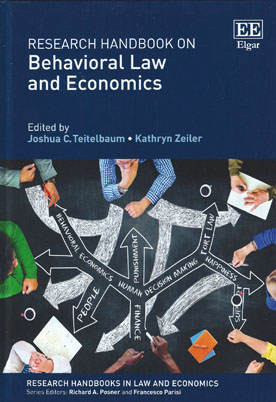
The field of behavioral economics has contributed greatly to our understanding of human decision making by refining neoclassical assumptions and developing models that account for psychological, cognitive and emotional forces.
The field’s insights have important implications for law. This Research Handbook offers a variety of perspectives from renowned experts on a wide-ranging set of topics including punishment, finance, tort law, happiness, and the application of experimental literatures to law. It also includes analyses of conceptual foundations, cautions, limitations and proposals for ways forward.
The leading scholars of law, economics, and psychology featured in this Handbook use their insights to synthesize and contribute to the extant research at the intersection of behavioral economics and key areas of law, and to demonstrate methods for effective original research. With synthetic literature reviews and original research, conceptual overviews and critical perspectives, as well as topic-specific chapters, it provides a strong overview of this burgeoning field.
Law and economics scholars, behavioral law scholars, and behavioral economists and psychologists dealing with law, judgement and decision making will appreciate this Handbook’s dedication to applicable research, and judges, lawmakers, policy advocates and regulators will note its important practical implications for law and public policy.